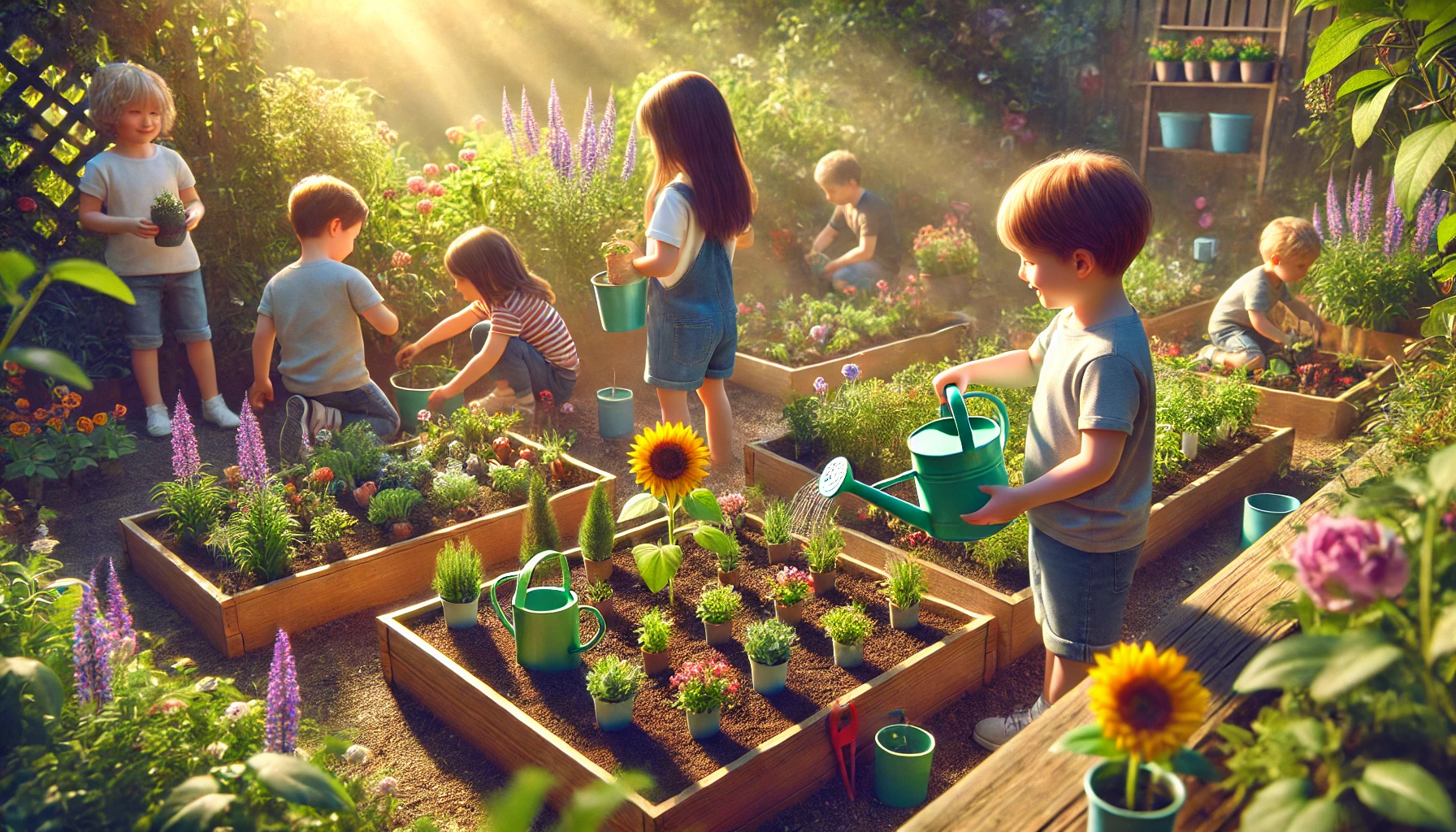Gardening is a wonderful way to introduce children to the beauty and importance of nature. By engaging them in planting, nurturing, and harvesting, you can teach kids valuable life skills while fostering a deep appreciation for the environment. In this article, we’ll explore how to make gardening fun and educational for children.
Why Gardening is Great for Kids
1. Encourages Curiosity and Learning
- Gardening teaches kids about plant life cycles, ecosystems, and where food comes from.
2. Develops Responsibility
- Caring for plants helps kids understand the importance of consistency and responsibility.
3. Promotes Outdoor Activity
- Gardening encourages physical activity and reduces screen time.
4. Enhances Mental Well-Being
- Connecting with nature can reduce stress and boost children’s mood and focus.
5. Teaches Patience
- Watching plants grow helps kids understand the value of patience and persistence.
How to Start Gardening with Kids
1. Choose Easy Plants
Start with plants that grow quickly or are visually engaging to keep kids motivated.
- Vegetables: Carrots, radishes, cherry tomatoes.
- Flowers: Sunflowers, marigolds, zinnias.
- Herbs: Basil, mint, parsley.
2. Use Kid-Friendly Tools
Provide small, lightweight tools designed for children, such as trowels, gloves, and watering cans.
3. Designate a Kid’s Gardening Area
Set aside a small plot or container garden where kids can experiment freely.
4. Make It Hands-On
Let kids participate in every step, from planting seeds to watering and weeding.
Fun Gardening Activities for Kids
1. Create a Miniature Garden
- Design a fairy or dinosaur-themed garden with small plants and decorations.
2. Grow from Scraps
- Show kids how to regrow lettuce or green onions from kitchen scraps.
3. Build a Pollinator-Friendly Garden
- Plant flowers that attract butterflies and bees, teaching the importance of pollinators.
4. Start a Compost Bin
- Teach kids about recycling organic waste into nutrient-rich soil.
5. Keep a Gardening Journal
- Have kids draw pictures or write about their plants’ progress.
Tips for Success
- Be Patient: Allow kids to make mistakes and learn through trial and error.
- Make It Fun: Turn gardening into a game or story to keep kids engaged.
- Celebrate Success: Praise their efforts and achievements, like the first bloom or harvest.
Life Lessons Through Gardening
Gardening teaches kids more than just how to grow plants—it instills a love for nature, the importance of nurturing, and the satisfaction of watching hard work pay off. These experiences will leave lasting memories and foster a lifelong connection to the environment.

